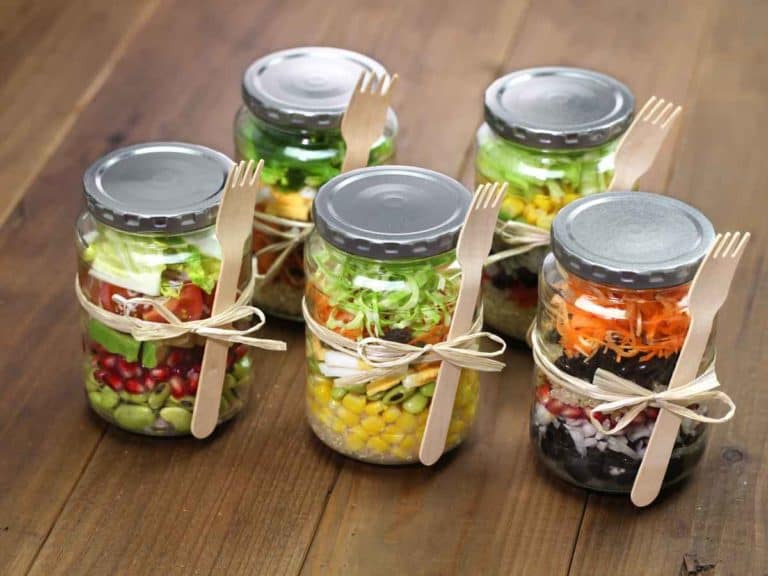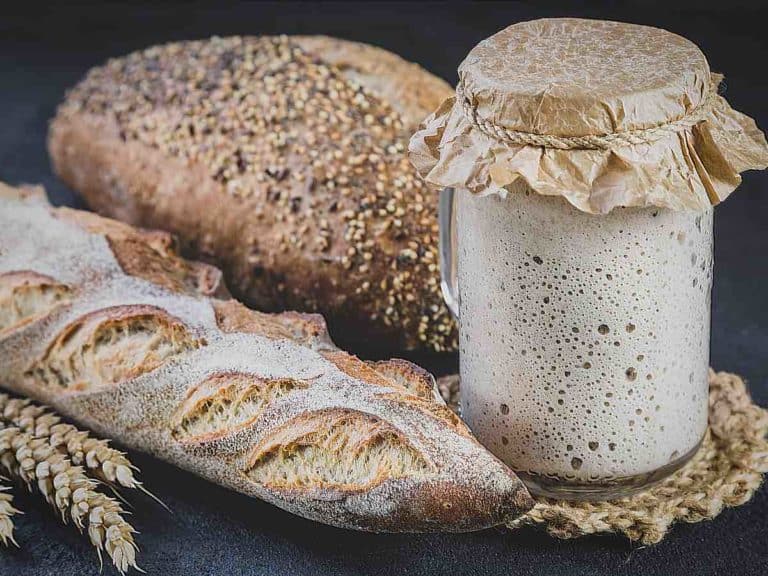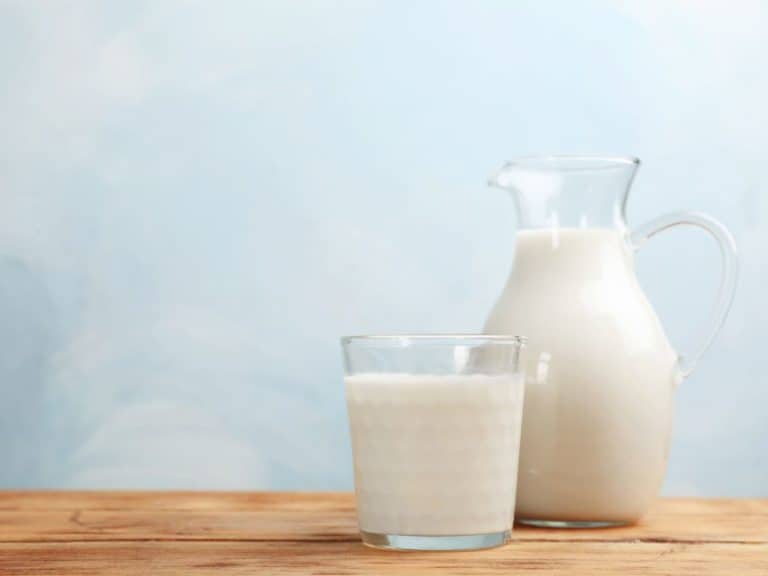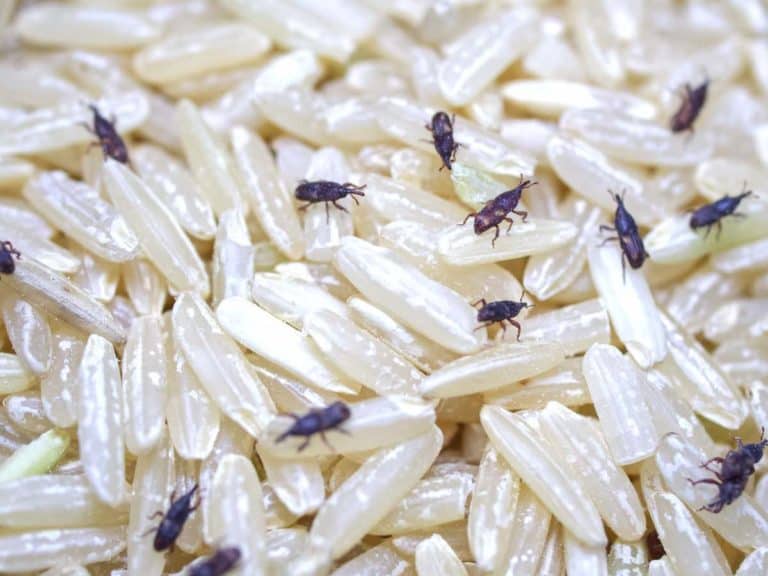Pros and Cons of Refrigerating Pickles
Pickles are often considered a kitchen stable and the chances of you having an opened jar in your refrigerator are pretty high. But have you ever seen pickles in the refrigerated section at the grocery store and questioned how they should be stored? Do cold pickles just task better, or is there an actual reason behind it?
While a new, unopened jar of pickles can be stored at room temperature for years without spoiling, opened store-bought pickles and fermented pickles should always be stored in the refrigerator. This helps slow down bacterial growth and lowers the risk of consuming spoiled food.
Overall, pickles need to be stored in different ways depending on their packaging and how they were made. Read on to find out exactly when pickles should be refrigerated and what happens when they are not.
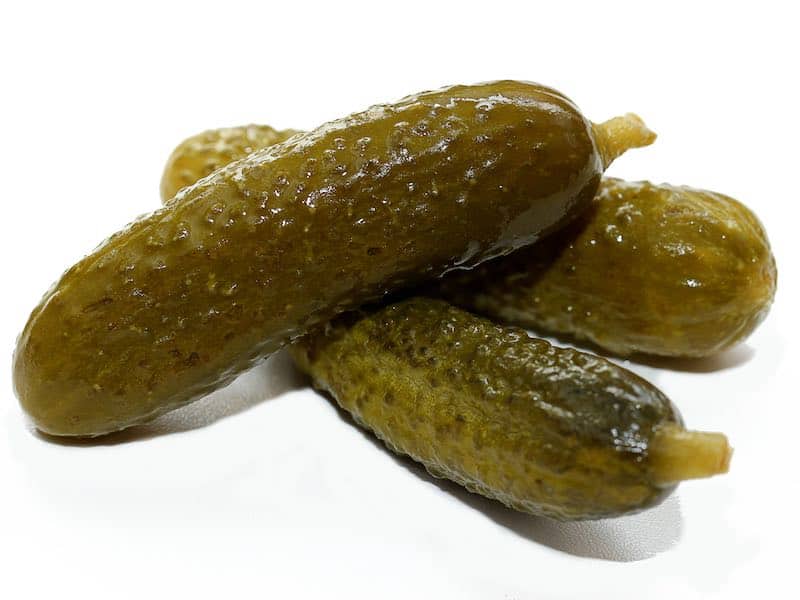
Should Pickles Be Refrigerated?
When buying a jar of pickles from the store, one of the key things to know is whether or not it was pasteurized. If you picked up the jar from a shelf a room temperature, then it is pasteurized. Pickle jars found in the refrigerator section of the store are unpasteurized.
Pasteurization kills the bacteria inside the jar, thus stopping the fermentation process. Because of this, the jar doesn’t require refrigeration until it is opened. Once you open the jar, the pickles need to be sealed properly and stored in the fridge.
Unpasteurized pickles are always sold refrigerated because the bacteria in the jar is still alive. In order to slow down the fermentation process and keep the pickles from spoiling, the jar needs to be kept in the fridge.
Do Homemade Pickles Need to Be Refrigerated?
There are four methods used when making pickles: vinegar-brined, salt-brined, fermented, and quick-pickling. Regardless of which pickling method is used, the pickles should always be stored in the fridge once opened.
When it comes to fermented pickles, these should be refrigerated regardless of being opened or closed. When stored at room temperature, the pickles will continue to ferment and sour with the increased production of lactobacillus.
While higher concentrations of lactobacillus are considered healthy, this also presents a chance for undesirable bacteria and yeast can form, making the pickles unsafe for consumption.
Related Article: Homemade Mayonnaise vs. Store-Bought: Ingredients, Shelf Life, Price, Etc.
What Is the Shelf Life of Pickles?
Pickling food helps to preserve it and, as a result, extends its shelf life. This also helps to impart acidity to the ingredient, giving it savory and umami flavor characteristics. But do pickles ever go bad?
Yes. Pickles, like all foods, do go bad eventually. However, the likelihood of your pickles going bad before you get the chance to eat them isn’t very high.
Because of the pickling process (and given that they are properly sealed), pickles can last in the pantry for years after their expiration date.
One thing you may notice in pickles that sit for a long time is that the texture will start to change. While this isn’t a dangerous or bad thing, it may not be appetizing to those who prefer that crisp pickle texture.
How To Know If Your Pickles Have Gone Bad
Contrary to popular belief, pickles don’t last forever. If you aren’t sure how long those pickles have been sitting in your pantry, it’s good to know what to look for so you can avoid consuming spoiled food. Here is a checklist of signs to look for when determining whether pickles have gone bad:
- Mold: If you see mold, eating the pickles probably isn’t the best idea. Mold Is a sign that harmful bacteria have taken over. This is commonly seen in fermented pickles.
- Smell: I funky or strange smell is always a red flag. If the pickles have taken on an uncharacteristic smell, it’s best to toss them out.
- Bulging Lid: If the metal screw-top of your pickle jar is bulging or showing signs of damage, this is a tell-tale sign that the pickles have gone bad. A bulging lid means that there are gasses trapped inside, which are typically caused by bacteria.
- Color: While this isn’t always a sign that the product is spoiled, it does mean that the pickles have changed chemically. Since pickling liquids typically help preserve color, your best bet is to play is safe.
These are really the main things you need to look out for. If your pickles have any one of these signs, throw them out. Eating spoiled food can have drastic effects on your health and you don’t want to risk it.
How To Store Pickles
Unopened jars of pickles can be kept at room temperature or in the refrigerator for up to two years beyond the expiration date. Pickles will keep fresh for about the same amount of time once opened as long as they are stored in a firmly sealed container in the refrigerator.
To ensure optimal freshness, remove your pickles from the jar with a clean utensil rather than your fingers, since this reduces the number of undesirable germs introduced every time you open the jar.
Can You Freeze Pickles?
While pickles can be frozen, this isn’t typically necessary. The pickling process already does the job of preserving the food inside the jar. Plus, putting them in the freezer isn’t going to make them last longer.
The structure of the fruit or vegetable will change as well. As the pickles freeze, the liquid inside will crystalize. The thawing process will leave you will a mushy product, so your best bet would be to use them frozen as a flavor additive to soups or casseroles.
Related Article: Differences Between Kosher Dill And Dill Pickles
Final Thoughts
Regardless of what part of the store you purchased your pickles from, the best bet is to keep them stored in the refrigerator, especially if the jar has been opened. While pickling is a great way to preserve food, the jar still needs to be stored properly to ensure the food stays fresh.
If you have a jar that has been sitting in your pantry for a bit, don’t fret. Just look for the signs of spoilage that we listed above. If anything feels off, it’s best to play it safe and toss them out.
![How to Store Raw Chicken [According to Science]](https://foodwine.com/wp-content/uploads/raw-chicken-1010586004-768x576.jpg)
